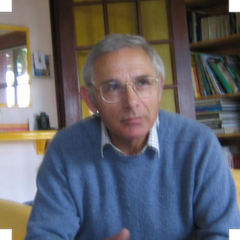
Among those scientists dabbling in the global warming field, at least one was interested in the heating effect of those vapor trails made by airplanes high up. The big problem was that those trails were there every day, thus it was impossible to make a comparison between a sky with them and a sky without them.
Then happened September 11, 2001. During three days all commercial air traffic was shut down as the consequence of Al Qaida's attack on the Twin Towers in New York.
Three days without those contrails in the sky and our scientist went busy checking the daily temperature all over the USA and comparing them with normal days.
The result was truly appalling. No vapor trails for three days and the average diurnal temp went up 1°C. For a meteorologist that is a huge difference.
As always in science and elsewhere: you find something new and all those other ones who "know" told him that he had a bee in his bonnet. But the finding was made and confirmed by observations measuring the sun light hitting the earth's surface. Yes, there was a clear drop between the sixties and now.
A new word was coined: global dimming.
The meaning of all this is only too clear. Global warming due to pollution would be much higher down here if we hadn't had the good idea to increase at the same time, by other pollutants, the clouds sailing overhead. In other words: clear skies, less global dimming, and whamm, our temp down here goes up.
If we don't do something radical, and do it fast, to decrease global warming, our good old planet might be doomed. Not for the insects and for the deep sea fish, but most certainly for us. We have to decrease first the warming effect and then, a little later, the global dimming. Otherwise, it appears, we might reach temperatures here on earth we did not have for some billion years.
Let's hope our dear leaders do something about it NOW and not only when the first refugees from the flooded coastal areas stream inland to find a dry spot.
Interesting times ahead.




